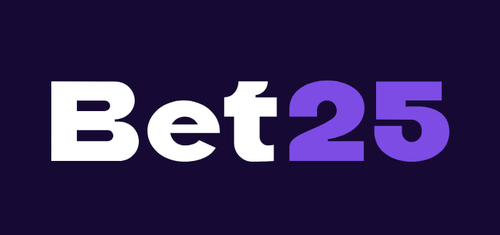A global index of verified online casinos, featuring Casino Ratings, geo-segmented access data, and traffic levels
Casino Rating is an expert-assigned overall score from 0 to 100 that summarizes a casino’s strengths, weaknesses, and overall player satisfaction.
Monthly website visits based on estimated traffic data.
What is GS Rank?
GS Rank shows a casino's position in our traffic chart. A lower GS Rank means a more popular casino.
No casinos match your search.
What Is Gamblescope & Why Trust Us
Gamblescope is an independent analytical platform focused on the online gambling and casino industry. We don’t promote casinos blindly and we don’t write generic “reviews” based on surface impressions.
We work directly with data: we analyze casinos across multiple markets, compare bonuses, payment limits, wagering rules, licensing, country restrictions, and real user complaints. Over time, we noticed clear patterns — the same casino can be suitable for players in Canada but problematic for players in the UK, highly rated in one region and heavily criticized in another.
By collecting and structuring these signals — player feedback, regulatory details, financial limits, bonus mechanics, and operational behavior — we developed a methodology that allows us to evaluate each casino in context, not in isolation.
Our goal is simple: to break every platform down transparently and provide you with structured information for critical analysis and informed comparison — not opinions, not hype, but facts you can verify.
Why Choose an Online Casino from Gamblescope
Because every casino on Gamblescope undergoes a deep, expert-level review — not a one-time check, but continuous monitoring.
If a casino loses its license, changes its regulatory status, or shows warning signs, we document it openly and reclassify the platform accordingly, including marking casinos as unlicensed when necessary. We don’t hide negative developments and we don’t remove facts to protect brands.
By clearly outlining both pros and cons, Gamblescope highlights operational signals that help you assess the real trust level of a casino — beyond marketing claims and surface ratings.
This approach allows you to make informed decisions based on transparency, risk indicators, and verified data rather than assumptions or promotions.
Why Gamblescope Is the Best Casino Review Site
We don’t publish fake or manipulated reviews. Unlike many competitors, Gamblescope allows real — often negative — player complaints to remain visible, because authentic feedback reflects reality, not marketing. Transparency, not reputation polishing, is the foundation of our reviews.
Our Method, Your Safety
Our methodology is based on hands-on analysis. We register real accounts, interact with customer support, and collect operational data directly. A detailed breakdown of this process is available in our article How We Analyze and Review Casinos
Always Up-to-Date Casino Database
We don’t publish a casino review and forget about it. Casinos on Gamblescope are regularly re-verified through both monthly and annual checks. In addition, verified casino representatives can submit updates regarding game providers, payment methods, and supported regions — helping keep our listings accurate, current, and based on real operational data.
Fairness Comes First
We prioritize fairness above all else. Gamblescope verifies the authenticity of games, along with the relevant licenses and certifications of each casino. When a platform fails these checks or shows clear scam behavior, it is removed from our database to protect players.
How We Evaluate Online Casinos
With nearly 10,000 online casinos operating worldwide, separating reliable platforms from risky ones is complex and time-consuming. Below, we explain the specific factors we analyze and compare to form an objective assessment and final verdict for each casino brand.
Our Casino Rating System Explained
Our casino rating, ranging from 0 to 100, reflects the expert judgment of our team rather than a purely abstract or automated formula. It is based on practical performance signals, including user behavior during registration and deposit stages.
As affiliate partners, we have access to aggregated engagement data — how many users visit a casino through our platform, how many complete registration, and how many proceed to deposit. This allows us to evaluate real user interest and engagement across different regions.
This engagement-based insight is one of the key metrics we use to determine how relevant and attractive a casino is for players in each specific geography.
Factors We Analyze
Beyond user engagement, we evaluate a wide range of operational and player-relevant factors. These include the number of software providers, availability of popular live dealers, diversity of deposit and withdrawal methods, withdrawal limits, and minimum deposit requirements by country.
We also assess bonus structures, licensing status, and wagering requirements across different bonus types. In addition, our analysis covers usability and interface design, feedback from comparable aggregators and independent review services, customer support responsiveness, and geo-availability — determining where a casino operates legally and where access is restricted.
Traffic analysis is another core metric in our methodology. We maintain our own GS Rank — a proprietary chart where casinos are sorted by real-world popularity and traffic volume, from the most visited platforms at the top to the least visited at the bottom. Every casino profile on Gamblescope displays its GS Rank, providing an additional, data-driven indicator of market relevance and player interest.
Who Tests the Casinos
We are a small team of analysts and experts with engineering backgrounds and experience in computer systems and networks. Some of us are former gamblers and slot enthusiasts, while others are programmers, developers, and designers who have worked inside online casinos and betting companies.
Every review is handled by a dedicated team member who conducts a hands-on evaluation: testing the casino in detail, communicating with support teams and managers, collecting operational data, verifying bonuses and payout structures, analyzing traffic, and assembling key parameters for each profile.
How to Use Gamblescope Effectively
The main advantage of the Gamblescope ranking is advanced filtering across virtually every relevant parameter. If you prefer a specific game type or software provider, you can sort casinos by individual providers — for example, viewing only platforms powered by Microgaming.
If you don’t trust certain licenses, such as Curaçao, you can exclude them and focus only on casinos regulated by authorities like Malta (MGA) or Anjouan. Filters also allow you to sort casinos by multiple metrics at once, including our rating, traffic popularity, launch date, or the number of software providers.
This filtering system lets you narrow down the database and identify casinos that truly match your preferences — from licensing and game content to payment methods and regional availability.
Safety, Licensing & Player Protection
The first thing to check before opening an account at any online casino is the presence of a valid gambling license issued by a recognized regulator. Licenses generally fall into two categories: national and offshore.
Offshore licenses typically cover jurisdictions without strict local regulation, where online gambling is not explicitly prohibited. National licenses, on the other hand, apply only to specific countries and offer stronger player protection — including regulatory oversight and the ability to pursue claims if a casino violates rules or ethical standards.
Common Red Flags to Avoid
There are several warning signs that can help you identify an untrustworthy casino. These include the absence of a visible gambling license, lack of well-known software providers, or the presence of cloned or unverified games.
Payment transparency is another key factor. While some legitimate crypto-only casinos operate without fiat methods, in most cases the combination of weak licensing and unknown providers is a serious red flag.
Traffic is also an important indicator. On Gamblescope, every casino profile displays a traffic indicator. If an established (non-new) casino shows consistently low traffic — for example, below 10,000 visits — this often signals underlying issues. Lack of player interest rarely happens without a reason.
Above all, focus on licensing, recognized game providers such as Evolution, Ezugi, or Playtech Live, and real user activity. Together, these factors significantly reduce the risk of dealing with unreliable platforms.
Casino Blacklists & Warnings
While most casino aggregators earn affiliate commissions, reputable platforms rarely assign high ratings to problematic or unlicensed casinos, as doing so would harm their own credibility. For this reason, it is always wise to compare casino ratings across multiple independent sources.
Checking platforms such as Casino Guru, AskGamblers, Gamblescope, CasinoFreak, and other established aggregators helps reveal consistent warning signals. If even one trusted source reports unfair practices, loss of communication with casino management, or if you see a large number of complaints on Trustpilot related to delayed payouts or unjustified account closures, it is best to avoid such casinos.
Deposits, Withdrawals & Payments
For most players, deposit and withdrawal methods are the most critical aspect of any online casino. That’s why Gamblescope places strong emphasis on analyzing payment conditions in detail.
By carefully reviewing casino terms and financial policies, we provide clear information on available deposit and withdrawal methods, minimum and maximum limits, and estimated processing times for each option. Within every casino profile, you’ll find a dedicated Payments section that outlines the casino’s full financial framework in a transparent and structured way.
Responsible Gambling
Gambling should remain a form of entertainment, not a source of income or financial pressure. Understanding risks and maintaining control is essential for long-term, healthy play.
How to Gamble Responsibly
Set clear limits before you play — on time, deposits, and losses — and stick to them. Never chase losses and never gamble with money you can’t afford to lose. If gambling stops being enjoyable, it’s time to take a break.
Know Yourself
Be honest about your behavior and emotional state. Fatigue, stress, or the desire to “win back” losses are strong signals to stop. Self-awareness is the first line of protection.
Know the Enemy
Online casinos are designed to maximize engagement. Fast gameplay, bonuses, and constant stimulation can impair judgment. Understanding these mechanics helps you resist impulsive decisions.
Responsible Gambling Tools
Most licensed casinos provide tools such as deposit limits, loss limits, session timers, cooling-off periods, and self-exclusion options. Using these tools is not a weakness — it’s a practical way to stay in control.




































































































